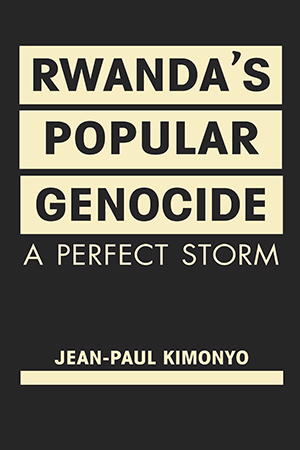Why did Rwanda's rural Hutus participate so massively, and so personally, in the country's 1994 genocide of its Tutsi population? Given all that has been written already about this horrific episode, is there still more that can be learned? Answering these questions, Jean-Paul Kimonyo's social and economic history explores at the deepest level the role both of power relations among Rwanda’s grassroots citizens, political parties, and the state and of socioeconomic factors vs. politically/socially constructed ethnicity.
Jean-Paul Kimonyo is a senior adviser in the Office of the President of Rwanda and also a fellow at the Rift Valley Institute.
"An important contribution.... Highly recommended."—Choice
"Worthy of the highest recommendation, especially for college and academic library collections."—Library Bookwatch
From the reviews of the French-language edition:
"[Kimonyo] studies the genocide from an angle that has been grossly under-researched until now.... He has the courage ... to challenge some of the current regime’s fundamental tenets.... [His analysis] offers new insights into the dynamics of the anti-Tutsi violence."—Filip Reyntjens, African Studies Review
"The outcome of very extensive fieldwork.... [Kimonyo] has produced a book of considerable historical scope, in which day-to-day events serve to explain how the genocide was conceived and then carried out."—Jean-Pierre Chrétien, author of The Great Lakes of Africa: Two Thousand Years of History






